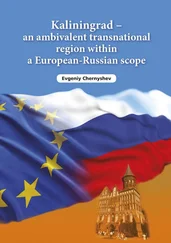(*2) Karl Marx was not one of these people. He was not, as he himself put it, "one of those who believed that the old Europe could be revived by Russian blood," [Note in source text]
After the revolution, the Bolshevik leaders succeeded, through clever and systematic propaganda, in establishing throughout large sections of the world public certain concepts highly favorable to their Own purposes, including the following: that the October Revolution was a popular revolution; that the Soviet regime was the first real worker's government; that Soviet power was in some way connected with ideals of liberalism, freedom and economic security; and that it offered a promising alternative to the national regimes under which other peoples lived. A connection was thus established in the minds of many people between Russian communism and the general uneasiness arising in the outside world from the effects of urbanization and industrialization, or from colonial unrest.
In this way Moscow's doctrine became to some extent a domestic problem for every nation in the world. In Soviet power, western statesmen arc now facing something more than just another problem of foreign affairs. They are facing also an internal enemy in their own countries — an enemy committed to the undermining and eventual destruction of their respective national societies.
To destroy this myth of international communism is a dual task. It takes two parties to create an inter-action such as that which exists between the Kremlin, on the one hand, and the discontented intellectuals in other countries (for it is the intellectuals rather than the "workers" who make up the hard core of communism outside the USSR), on the other. It is not enough to tackle this problem by aiming to silence the propagator. It is even more important to arm the listener against this sort of attack. There is some reason why Moscow propaganda is listened to so avidly, and why this myth takes hold so readily, among many people far from the boundaries of Russia. If it were not Moscow these people listened to, it would be something else, equally extreme and equally erroneous, though possibly less dangerous. Thus the task of destroying the myth on which international communism rests is not just an undertaking relating to the leaders of the Soviet Union. It is also something relating to the non-Soviet world, and above all to the particular society of which each of us forms a part. To the extent to which we can dispel the confusion and misunderstandings on which these doctrines thrive — to the extent that we can remove the sources of bitterness which drive people to irrational and Utopian ideas of this sort — we will succeed in breaking down the ideological influence of Moscow in foreign countries. On the other hand- we must recognize that only a portion of international communism outside Russia is the result of environmental influence and subject to correction accordingly. Another portion represents something in the nature of a natural mutation of species. It derives from a congenital fifth-columnism with which a certain small percentage of people in every community appear to be affected, and which distinguishes itself by a negative attitude toward the native society and a readiness to follow any outside force which opposes it. This element will always be present in any society for unscrupulous outsiders to work on; and the only protection against its dangerous misuse will be the absence of the will on the part of great-power regimes to exploit this unhappy margin of human nature.
Fortunately, the Kremlin has thus far done more than we ourselves could ever have done to dispel the very myth by which it operates. The Yugoslav incident is perhaps the most striking case in point; but the history of the Communist International is replete with other instances of the difficulty non-Russian individuals and groups have encountered in trying to be the followers of Moscow doctrines. The Kremlin leaders are so inconsiderate, so relentless, so over-bearing and so cynical in the discipline they impose on their followers that few can stand their authority for very long.
The Leninist-Stalinist system is founded, basically, on the power which a desperate, conspiratorial minority can always wield, at least temporarily, over a passive and unorganized majority of human beings- For this reason, the Kremlin leaders have had little concern, in the past, about the tendency of their movement to leave in its train a steady backwash of disillusioned former followers. Their aim was not to have communism become a mass movement but rather to work through a small group of faultlessly disciplined and entirely expendable followers. They were always content to let those peoples go who could not stomach Their particular brand of discipline.
For a long time, this worked reasonably well. New recruits were easy to obtain; and the Party lived by a steady process of natural selection-out, which left within its ranks only the most fanatically devoted, the most unimaginative, and the most obtusely unscrupulous natures.
The Yugoslav case has now raised a great question mark as to how well this system will work in the future, Heretofore, heresy could safely be handled by police repression within The limits of Soviet power or by a tested process of excommunication and character-assassination outside those limits. Tito has demonstrated that in the case of the satellite leaders, neither of these methods is necessarily effective. Excommunication of communist leaders who are beyond the effective range of Soviet power and who themselves have territory, police power, military power, and disciplined fol- lowers, can split the whole communist movement, as nothing else was ever able to do, and cause the most grievous damage to the myth of Stalin's omniscience and omnipotence.
Conditions are therefore favorable to a concentrated effort on our part designed to take advantage of Soviet mistakes and of the rifts that have appeared, and to promote the steady deterioration of the structure of moral influence by which the authority of the Kremlin has been carried to peoples far beyond the reach of Soviet police power.
We may say, therefore, that our second aim with respect to Russia in time of peace is, by informational activity and by every other means at our disposal, to explode the myth by which people remote from Russian military influence are held in a position of subservience to Moscow and to cause the world at large to see and understand the Soviet Union for what it is and to adopt a logical and realistic attitude toward it.
2. THE ALTERATION OF RUSSIAN CONCEPTS OF INTERNATIONAL AFFAIRS
We come now to the interpretation, in terms of peacetime policy, of our second major objective: namely, to bring about an alteration of the concepts of international relations prevalent in Moscow governing circles.
As has been seen above, There is no reasonable prospect that we will ever be able to alter the basic political psychology of the men now in power in the Soviet Union. The malevolent character of their outlook on the outside world, their repudiation of the possibility of permanent peaceful collaboration, their belief in the inevitability of the eventual destruction of the one world by the other: these things must remain, if only tor the simple reason that the Soviet leaders are convinced that their own system will not stand comparison with the civilization of the west and that it will never be secure until the example of a prosperous and powerful western civilization has been physically obliterated and its memory discredited. This is not to mention the fact that these men are committed to the theory of inevitable conflict between the two worlds by the strongest of all commitments: namely, the fact that they have inflicted the punishment of death or of great suffering and hardship on millions of people in the name of this theory.
Читать дальше










